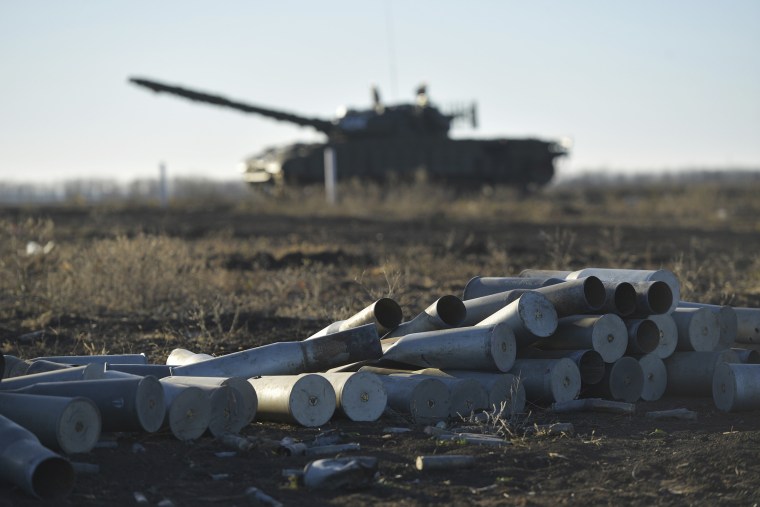A suspected Russian smuggling ring has been charged with sending prohibited electronics worth millions of dollars from the United States to be used in making guided missiles and tanks for the war in Ukraine, according to an indictment unsealed Tuesday.
Federal prosecutors in Brooklyn accuse two men and one woman of sending semiconductors, circuits and dual-use electronic components worth about $10 million, to Russia through front companies based in Brooklyn, New York.
They are Salimdzhon Nasriddinov, 52, a dual Russian-Tajikistan citizen, who lives in Brooklyn, Kristina Puzyreva, 32, and Nikolay Goltsev, 37, both Russian-Canadians from Montreal.
Four more Russians are also charged with involvement in the alleged scheme.
Nasriddinov was arrested in Brooklyn on Oct. 31 while the others were arrested at a Manhattan hotel prior to a planned meeting with him the same day.
They are charged with conspiracy and other charges related to what prosecutors called a "global procurement scheme on behalf of sanctioned Russian entities, including companies affiliated with the Russian military," according to a news release.
The indictment said that on Feb. 23, Nasriddinov texted Goltsev to wish him "Happy Defender of The Fatherland," referring to the holiday celebrating the armed forces in Russia and some neighboring countries.
Goltsev allegedly replied: "Happy holiday to you too my friend, we are defending it in the way that we can [smile emoji]."
The suspected are accused of shipping items to Turkey, Hong Kong, India, China, and the United Arab Emirates from where they would then be sent to Russia.
In November 2022, the suspects discussed via text messages how shipping to Russia had become "dangerous" and said a shipment of electronics had been detained at JFK Airport, the indictment said.
"I don’t really understand how they figured [it] out," Goltsev said in one message.
"As alleged, the defendants evaded sanctions, shipping equipment to Russia vital for their precision-guided weapons systems, some of which has been used on the battlefield in Ukraine," said U.S. Attorney Breon Peace in the news release.
Ivan J. Arvelo, special agent in charge of Homeland Security investigations in New York, said the group was accused of sending some 300 separate shipments of restricted items destined for the battlefield, "to support the Kremlin in its ongoing attacks of Ukraine."
The U.S. has tough economic sanctions against a long list of companies and individuals linked to Russia’s war in Ukraine, and doing business with them is a criminal offense.
But the indictment alleges that the suspects used two U.S. companies — SH Brothers Inc and SN Electronics Inc — to send electronics to sanctioned companies in Russia.
Goltsev would make orders on behalf of Russian defense sector clients, buying items from U.S. manufacturers and distributors using names such as "Nick Stevens" or "Gio Ross," the authorities said. The goods were then sent to multiple locations in Brooklyn.
The Department of Commerce said the components were "of the highest concern due to their critical role in the production of advanced Russian precision-guided weapons systems."
The same parts shipped by these companies have been seen in seized Russian weapons and signals technology, the indictment said, including radio reconnaissance devices, a light multi-purpose guided missile, an airborne counter missile system, drones and tanks.
The grinding war in Ukraine is approaching its second anniversary in February and has claimed thousands of lives on both sides, as huge levels of U.S. funding continues to fuel disagreement in Washington. Ukrainian President Volodymyr Zelenskyy told NBC News' "Meet the Press" earlier this month that the conflict was not a "stalemate."


